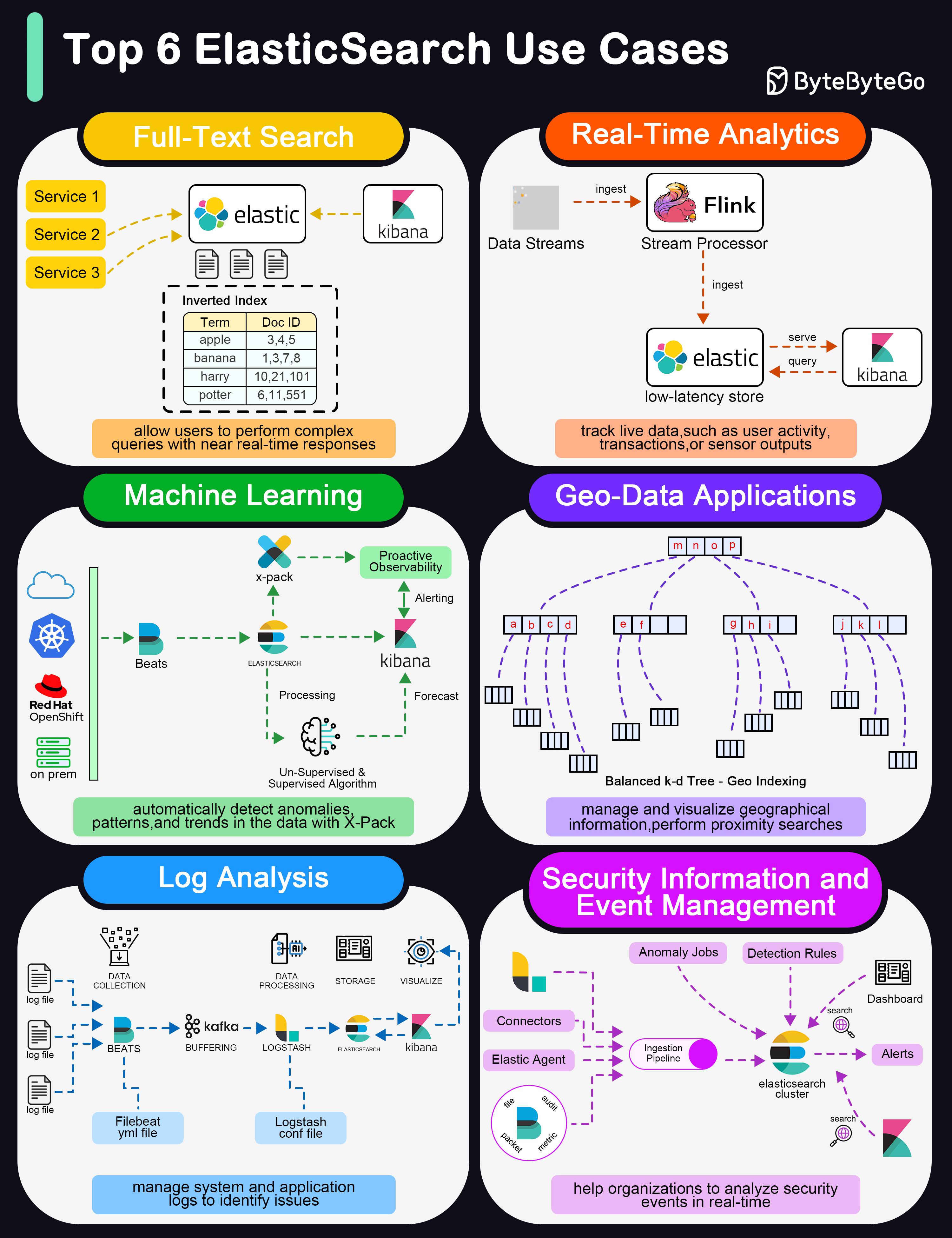Explore the top 6 use cases of Elasticsearch in various applications.

Elasticsearch is widely used for its powerful and versatile search capabilities. The diagram above shows the top 6 use cases:
Elasticsearch excels in full-text search scenarios due to its robust, scalable, and fast search capabilities. It allows users to perform complex queries with near real-time responses.
Elasticsearch’s ability to perform analytics in real-time makes it suitable for dashboards that track live data, such as user activity, transactions, or sensor outputs.
With the addition of the machine learning feature in X-Pack, Elasticsearch can automatically detect anomalies, patterns, and trends in the data.
Elasticsearch supports geo-data through geospatial indexing and searching capabilities. This is useful for applications that need to manage and visualize geographical information, such as mapping and location-based services.
Organizations use Elasticsearch to aggregate, monitor, and analyze logs and event data from various sources. It’s a key component of the ELK stack (Elasticsearch, Logstash, Kibana), which is popular for managing system and application logs to identify issues and monitor system health.
Elasticsearch can be used as a tool for SIEM, helping organizations to analyze security events in real time.